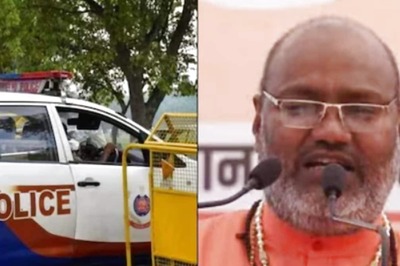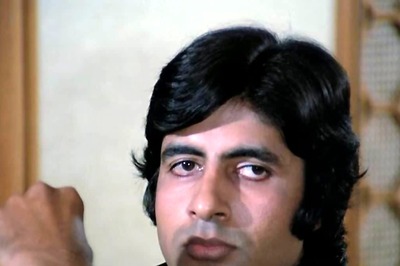
views
Bhubaneswar: Seventy-year-old Daitari Naik, a semi-literate daily-wage labourer in Odisha, became a household name in the state and attracted both dignitaries and commoners to his modest hut in January soon after being named for a Padma Shri award, India’s fourth highest civilian honour.
But after the public and political euphoria over his national honour died down, Naik is an utterly disappointed man. He wants to return his award to the government as it has effectively snatched his source of livelihood away: daily-wage labour.
“Earlier, I used to get regular calls for manual work and earned just enough for my family’s daily meals. Since the day I was honoured with a Padma Shri award, people here started saying that the government had made me a big man and so they would bear a stain if they continued to give me work. You will not get any work from us now, they told me,” Naik told News18 at his asbestos-roofed hut in Talabaitarani, a remote village in the underdeveloped Banspal block of Keonjhar district.
Naik, also called the ‘Canal Man of Odisha’, was conferred with the award for social work in recognition of the bone-stirring toil he undertook for years to make irrigation facilities a reality for farmers in his village.
Hailing from the Bhuyan tribal community, Naik had single-handedly dug a three-km-long canal from a mountain stream to the farmland in his village, using just a hoe and a crowbar. His selfless toil bore fruit in 2018 when water from the Karatakata Nullah of the Gupta Ganga reached his village and irrigated around 100 acres of land. His three brothers and two nephews helped him realise the dream.
The award citation, which Naik received from President Ram Nath Kovind at a state ceremony in New Delhi, now hangs inside a shiny frame on the mud wall of his sparse house. But Naik is no longer proud to be a recipient of this honour.
“I told everyone in the locality that I do not want to be a big man with a big award from the government. I told them that all I need is to continue earning daily meals for me and my family through manual labour as before. But nobody seems to see my point. I have, therefore, decided to return the Padma Shri to the government,” he said.
“What shall I do with this honour if it prevents me from getting regular work like earlier? Shall I lick this honour and stay alive? I want to return it to the government and become once again the hardworking man that I have been,” he added bitterly.
In the months after his Padma Shri selection was announced, Naik said a few leaders had assured him that they would grant him a concrete house under the state government’s Biju Pakka Ghara scheme. A few others had said they would build an office from where he would work.
“But nothing of the kind happened so far. There is not even an ‘anganwadi’ centre in my village,” he said. “There is no all-weather road connecting my village to the town.”
Kulamani Naik said his neighbour had suffered badly since he was awarded the Padma Shri. “How can people give any manual work for money to a man who has received such a high honour from the government?” he asked.
Naik’s achievement is much like Bihar’s ‘Mountain Man’ Dasrath Manjhi, a poor Dalit man in Gaya district who had singlehandedly dug through a hill for 22 years with only a hammer and a chisel. After the tragic death of his wife on the rocky slopes of the hill, Manjhi quietly started his labour of love in 1960, with the road being ready in 1982. His achievement became known only in 2006.
Before Manjhi died a year later, Bihar Chief Minister Nitish Kumar had felicitated him and offered him his chair for a few minutes. Manjhi was given a state funeral. A Bollywood movie named ‘Mountain Man’, directed by Ketan Mehta, depicted his life on the big screen. However, a civilian national honour eluded Manjhi despite numerous demands.
(With inputs from Avaya Mohapatra)



















Comments
0 comment